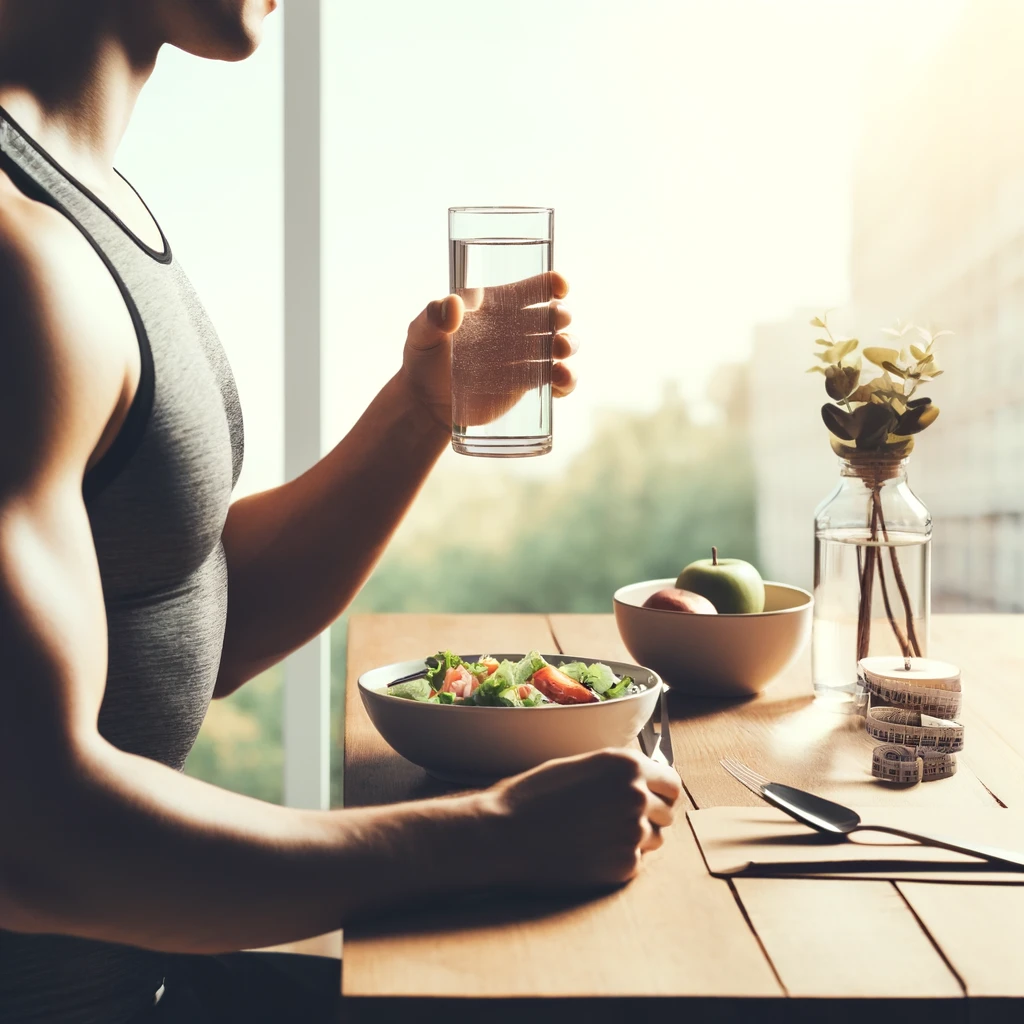Mobile Location: 251.341.0927 | Daphne Location: 251.651.0927
Mobile Location: 251.341.0927 | Daphne Location: 251.651.0927
The Secret To Fat Loss | Personal Edge Fitness
Unveiling the Secret to Fat Loss: The Role of Water

Welcome, fitness enthusiasts, to an exploration of one of the most beloved topics in the realm of health and wellness: fat loss. Today, we embark on a journey to uncover the often-overlooked hero in our quest for a leaner, healthier body – water.
The Importance of Targeting Fat, Not Just Weight
Before we delve into the transformative power of water, let’s clarify our objective: it’s not merely about shedding pounds on the scale. Instead, our goal is to bid farewell to stubborn fat deposits that hinder our fitness progress and dampen our confidence.
The Trainer’s Insight: Catalyst for Lifestyle Change
As a seasoned personal trainer deeply committed to helping clients achieve their weight loss goals, I’ve witnessed firsthand the struggles individuals face in their journey towards a fitter self. That’s why we’ve developed Catalyst, a comprehensive lifestyle change program tailored to address weight loss holistically.
Getting Down to Business: Debunking Myths and Embracing Science
No more beating around the bush. Let’s confront the misconceptions head-on and embrace the science behind effective fat loss strategies. And at the heart of it all lies a simple yet potent tool: water.
The Multi-Faceted Benefits of Hydration
Water isn’t just for quenching thirst; it serves as the lifeblood of our bodily functions. From lubricating joints to aiding digestion and nutrient transport, its benefits are manifold. But today, we’re focused on its role in fat metabolism.
Unraveling the Mysteries of the Krebs Cycle
Enter the Krebs cycle, a biochemical pathway centered around liver function – a pivotal player in fat metabolism. A well-hydrated body ensures optimal liver performance, facilitating the breakdown and processing of fat stores.
Water: The Active Fat-Burning Agent
But water isn’t content with a passive role. It actively contributes to calorie expenditure, particularly when consumed cold. This thermogenic effect ignites your metabolism, torching extra calories and accelerating fat loss.
The Path to Optimal Hydration: Strategies for Success
Now that we understand the science behind water’s fat-burning prowess, let’s chart a course towards optimal hydration. It’s not just about guzzling gallons; it’s about incorporating water into your daily routine in a sustainable manner.
Building Hydration Habits: Consistency is Key
Consistency is the cornerstone of success. Start by making water your constant companion, carrying a water bottle wherever you go. Use simple tools like rubber bands to track your intake and gradually increase your consumption over time.
Navigating the Bladder Conundrum: Adapting to Increased Intake
Concerned about frequent bathroom trips? Fear not. Just as your stomach expands with regular food intake, your bladder adapts to higher fluid volumes over time. It’s a gradual process, but soon enough, you’ll find yourself comfortably accommodating increased hydration.
Beyond Fat Loss: The Holistic Benefits of Hydration
But the benefits of hydration extend far beyond fat loss. From promoting youthful-looking skin to supporting overall health and vitality, adequate water intake is non-negotiable for optimal well-being.
Exploring the Psychological Aspects: Understanding Hunger vs. Cravings
Let’s delve deeper into the psychological nuances of hunger and cravings. Understanding the distinction between the two is crucial for mindful eating and sustainable fat loss. Hunger signals a genuine physiological need for nourishment, while cravings often stem from emotional or environmental triggers.
The Role of Water in Appetite Regulation
Interestingly, staying well-hydrated can help curb cravings and prevent overeating. Thirst is often mistaken for hunger, leading to unnecessary calorie consumption. By sipping water throughout the day, you can keep cravings at bay and maintain better control over your food choices.
Strategies for Incorporating More Water into Your Diet
If you’re struggling to meet your daily hydration goals, fear not – there are plenty of strategies to help you increase your water intake. Experiment with infused water recipes, set reminders on your phone, or invest in a stylish reusable water bottle to make hydration a habit.
Reaping the Rewards: Celebrating Your Progress
As you embark on your hydration journey, remember to celebrate every milestone along the way. Whether it’s reaching your daily water intake goal or noticing improvements in your energy levels and complexion, each achievement deserves recognition.
Conclusion: Cheers to Your Hydration and Fat-Loss Success!
As we conclude our exploration of water’s transformative power, I urge you to embrace hydration as a cornerstone of your fitness journey. Together, let’s raise a glass to your hydration and fat-loss success!
Additional Resources and Support
If you’re hungry for more information or seeking personalized support on your fitness journey, don’t hesitate to reach out. Our team is here to provide guidance, motivation, and support every step of the way.
Connect with Us!
Have questions or want to learn more? Reach out to us at Personal Edge Fitness through our website or social media channels. We’re here to support your fitness journey every step of the way.
Thanks for reading the Personal Edge Fitness Blog, by Garrett Williamson. Ask questions by calling 251-278-EDGE (3433) or message us on Facebook and Instagram @PersonalEdgeFitness or @TeamPE on Twitter and visit us at PersonalEdgeFitness.com
